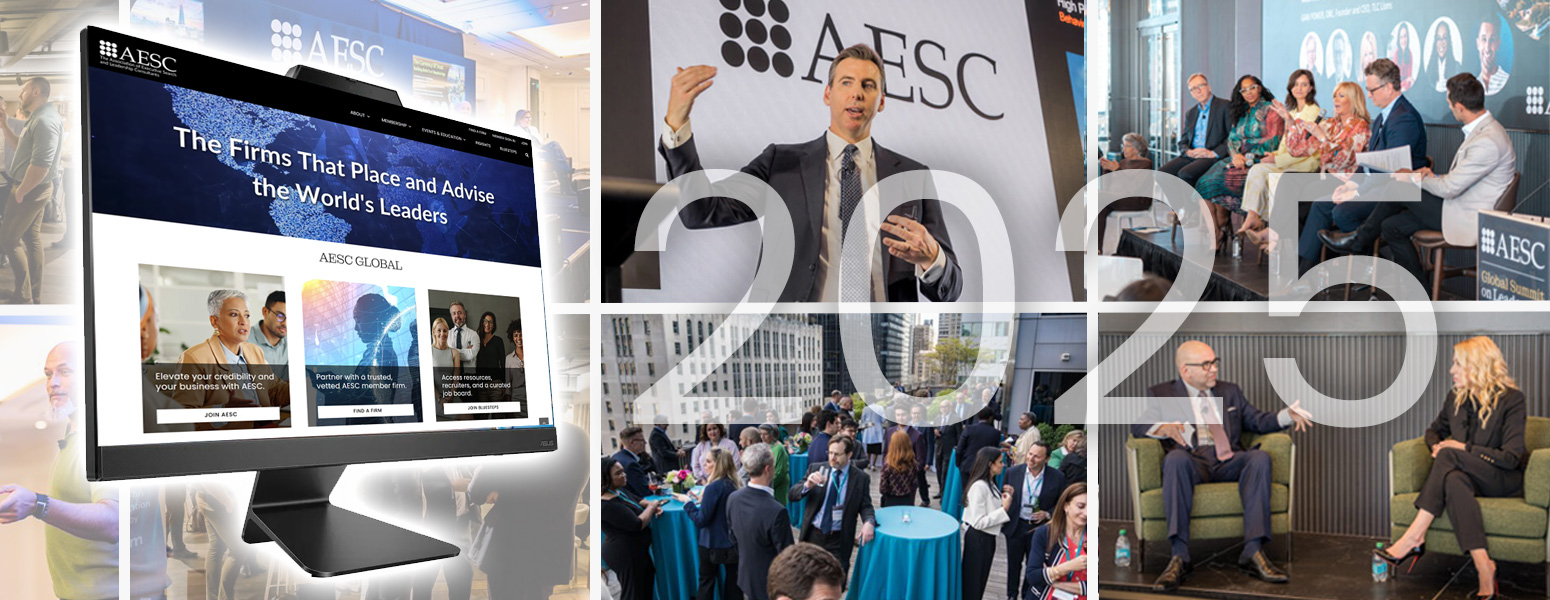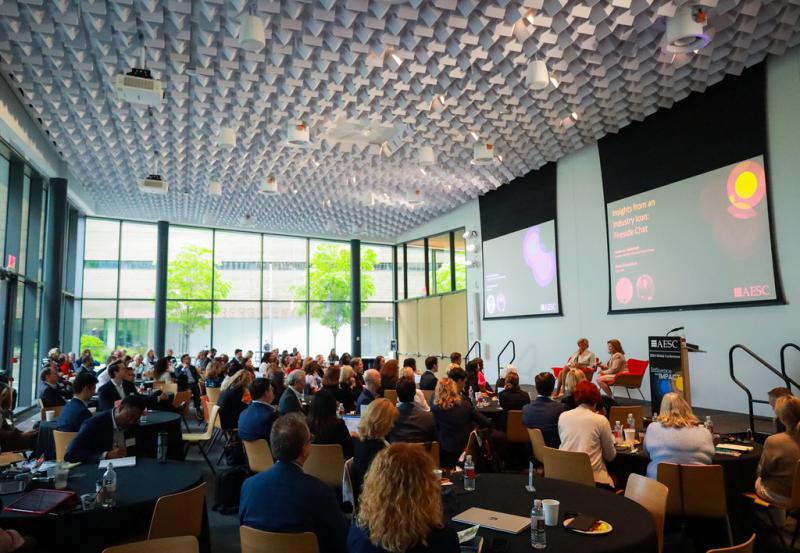FILTER YOUR RESULTS
- Blog | December 2025
AESC has experienced a transformative 2025. The year began with a change in leadership, and from there we reimagined how we bring our community [...]
- Blog | November 2025
Uncertainty has always been part of business, but the current era feels different. Rapid technological change, economic volatility, and shifting global dynamics have transformed [...]
- Blog | October 2025
In today’s market, business development has never been more critical, or more complex. Economic uncertainty, evolving client expectations, and intensified competition are reshaping how [...]
- Blog | October 2025
The most successful nonprofit organizations understand a central truth about advancement leadership: Chief Advancement Officers (CAOs) are strategic executives. Case studies across the nonprofit [...]
- Blog | September 2025
Every three years, the Association of Executive Search and Leadership Consultants (AESC) conducts the most comprehensive study of executive talent acquisition in the world. The [...]
- Blog | June 2025
The executive job market is dynamic and highly competitive, requiring candidates to go beyond traditional approaches to stand out. Whether you’re aiming for a C-suite [...]
- Blog | June 2025
The Association of Executive Search and Leadership Consultants (AESC) has set the quality standard for the executive search and leadership consulting profession for nearly 65 [...]
- Blog | January 2025
In today’s competitive business landscape, the role of executive talent has evolved to encompass greater responsibility – to the organization, its employees and the public [...]
- Blog | December 2024
Hiring the right executives is crucial for the long-term success and growth of an organization. Executive search consultants play a critical role in helping organizations [...]
- Blog | October 2024
In today’s competitive business landscape, building trusted relationships with clients, especially with those in the C-suite is more difficult than ever before. With numerous priorities [...]
- Blog | October 2024
Founded in 1959 to set the standards for the executive search and leadership consulting profession, the Association of Executive Search and Leadership Consultants (AESC) continues [...]
- Blog | September 2024
The cost of a bad hire is high. Not only can a bad hire cost your organization hundreds of thousands of dollars in compensation packages [...]








